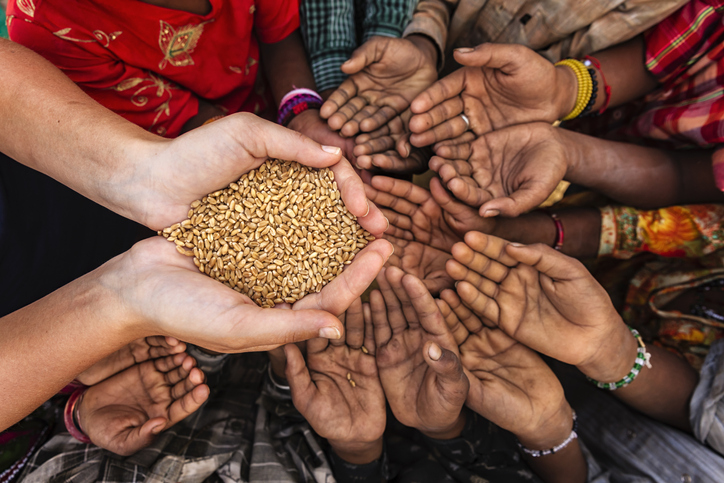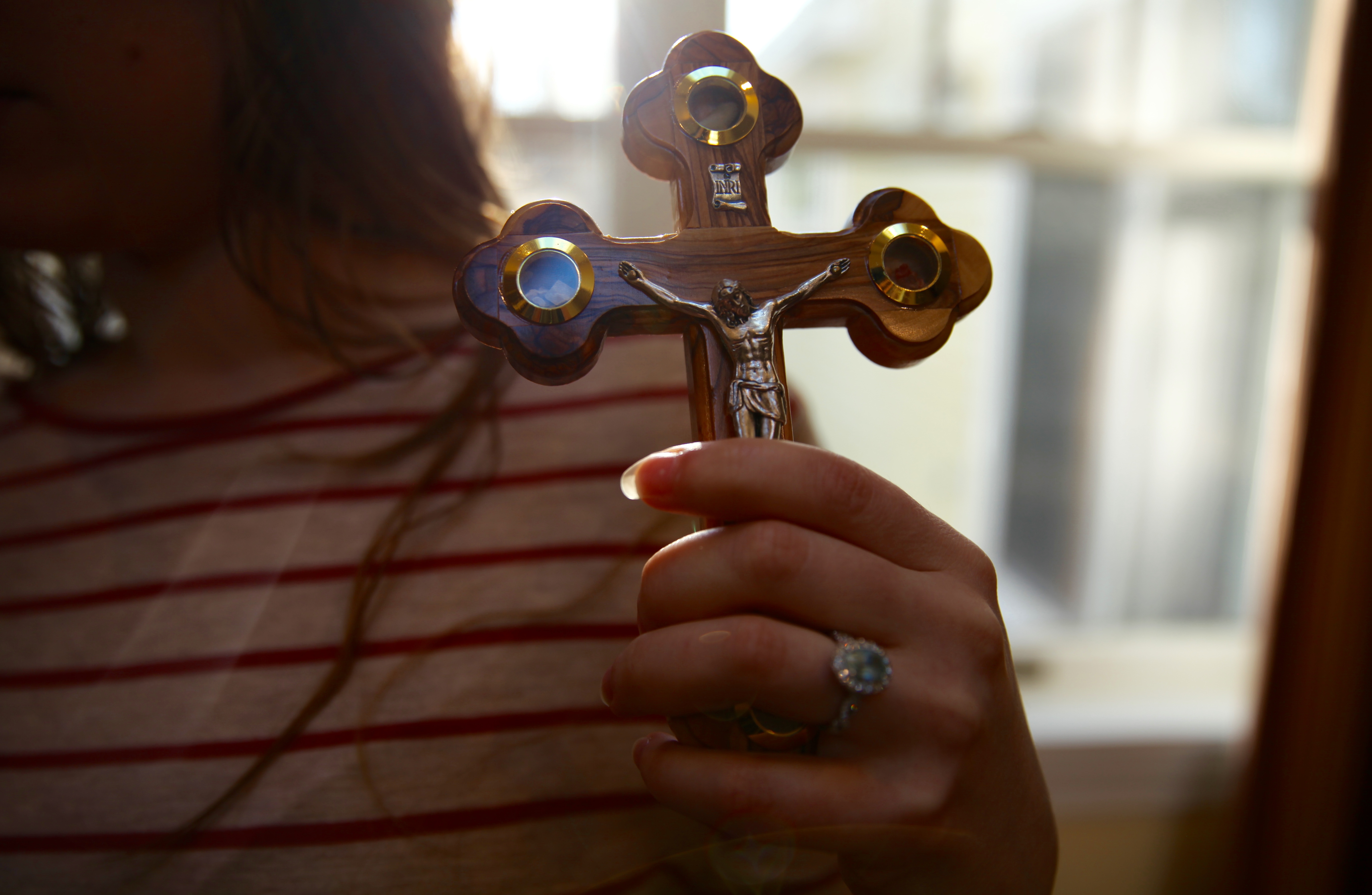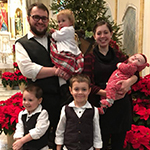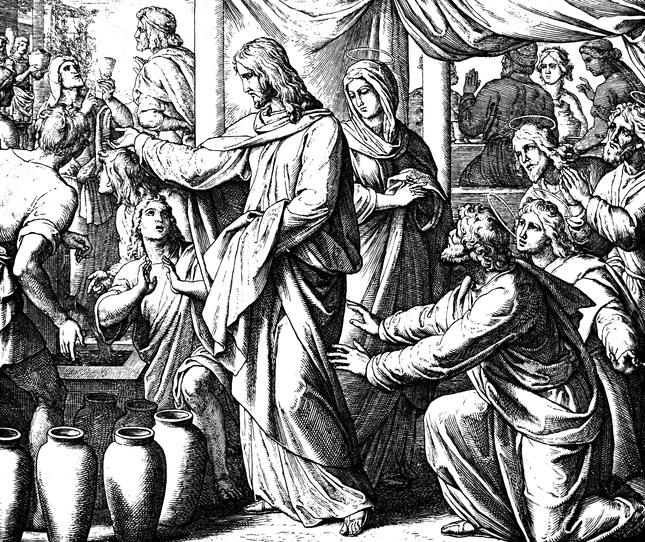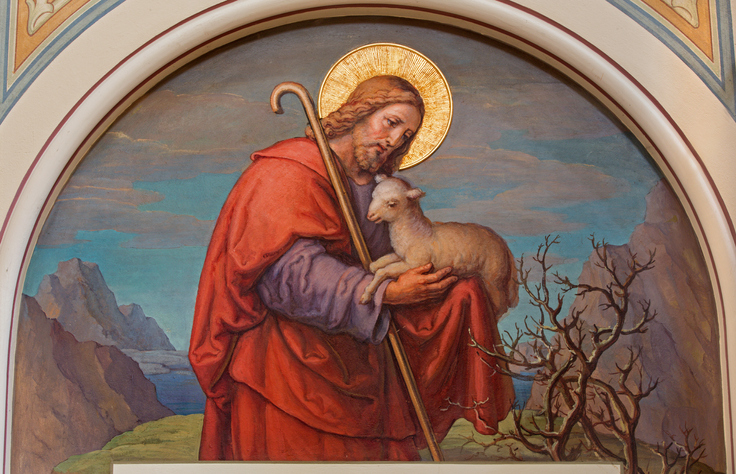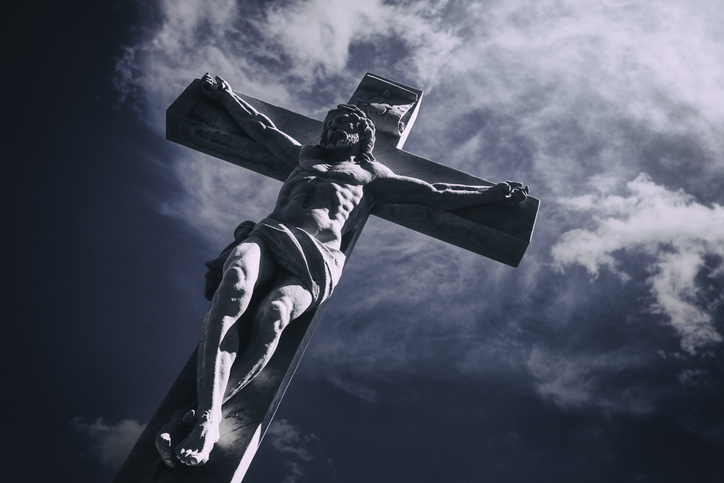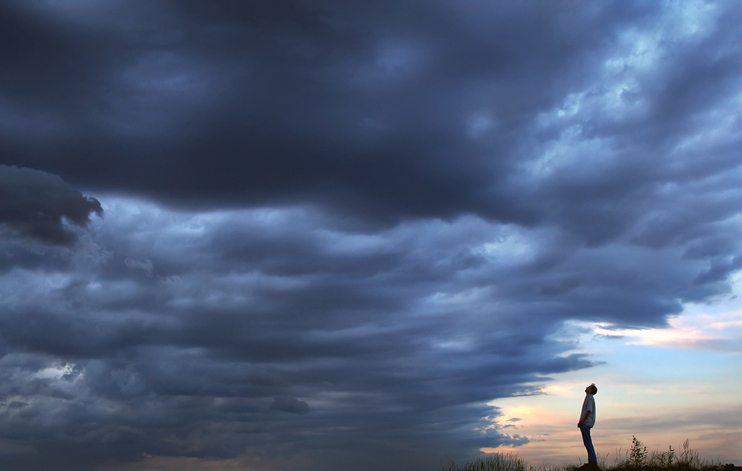I work for a Catholic publishing company, and so now in early February, we’re already preparing for Lent. That means, naturally, that it’s on my mind, and so I’ve turned my own attention to the Lenten practices I plan to observe this year. The three “pillars” of the early Church— prayer, fasting, and almsgiving—are always at the center of Lenten observances, and they provide a logical current: prayer flows into fasting, and fasting flows into action.
Well, that was the early Church, wasn’t it? And as the Church grew and changed, fasting became a lost discipline. It may have been standard operating procedure for God’s people in both the Hebrew Bible and in the New Testament (in Matthew 6:16, Jesus didn’t say “if you fast”—he said “when you fast”), but because fasting has fallen out of popularity, we don’t recognize it as applicable to our lives. Yet, just like prayer, it can be a powerful tool, comfort, and catalyst for change.
Today’s Gospel is about food: it’s the famous miracle of the loaves and fishes. The disciples were concerned that the crowd of people that had come to hear Jesus had nothing to eat. Were they afraid the crowd would disperse out of hunger? Riot? Or was it just human kindness and compassion that gave rise to their concern? We’re not told that. We’re only told they brought what they had to Jesus—seven loaves and a few small fishes—and Jesus multiplied the food so thousands of people were fed, with seven baskets left over.
It’s an appealing story. An opportunity for Jesus to demonstrate to a crowd that he was more than just another itinerant preacher. A reminder to us that with God, anything is possible.
And yet… and yet.
The United Nations Food and Agriculture Organization estimates that about 815 million of the 7.6 billion people in the world, or ten and a half percent, were suffering from chronic undernourishment in 2016. Almost all hungry people live in lower-middle-income countries, but there are eleven million people undernourished in developed countries—places like the United States.
The irony is this: the world produces enough food to feed everyone. The problem is that many people don’t have sufficient income to purchase—or land to grow—enough food, or to access nutritious food.
So the obvious questions become, why does God allow famine and hunger? Why do children in the wealthiest country on earth go to bed at night hungry? If Jesus could multiply loaves of bread and “a few fishes” to fed multitudes there to hear him speak, why isn’t he concerned about the 815 million undernourished people in the world today?
Perhaps we’re asking the wrong questions. Perhaps it’s not a lack of concern on his part, but on ours.
Jesus lives forever in heaven, but it was never part of the plan for him to live forever on earth. He passed his authority to Peter for one reason—so the Church could continue to do God’s work in the world. So that we, the community of faith, could be the presence, the voice, the love of God to all of humanity. It’s true that with God all things are possible, but God expects us to be the instruments of that possibility.
Which brings us back to fasting. Most of us think of it as a passive activity: we don’t eat something. But if we want change to happen, prayer and fasting are our first steps in the process, and if we’re serious about change, then the two are inseparable. Fasting is what enables prayer: it is an incessant reminder of the need for help and the need for action. Fasting is what sets the process in motion; it gives intentionality to our prayer. Growth and change never come from a place of comfort, and fasting keeps us uncomfortable, forcing us to think about consumption and privilege.
Fasting makes sense if it really chips away at our security and, as a consequence, benefits someone else. It is a sign of becoming aware of and taking responsibility for injustice and oppression, especially of the poor and the least, and is a sign of the trust we place in God and his providence. (Pope Francis)
We live in a culture of fast food, instant gratification, and self-centeredness. Fasting forces us to think intentionally about the foods we eat, the goods we consume, and the ways in which we are privileged. Fasting forces us to consider what it is like to go without. And, honestly, what better way to understand those who are hungry than by… going hungry?
Perhaps as you consider your own Lenten practice this year, you might include the three pillars of the early Church in it: prayer, fasting, almsgiving. Pray to discern what God is calling you to do. Fast—and if you can, make it a real fast, one that leaves you understanding what hunger is about. And then take the money you would have spent on that meal or those meals, and give to an organization fighting hunger.
Jesus didn’t leave the crowds hungry. Neither should we.

Jeannette de Beauvoir is a writer and editor with the digital department of Pauline Books & Media, working on projects as disparate as newsletters, book clubs, ebooks, and retreats that support the apostolate of the Daughters of St. Paul at http://www.pauline.org.
